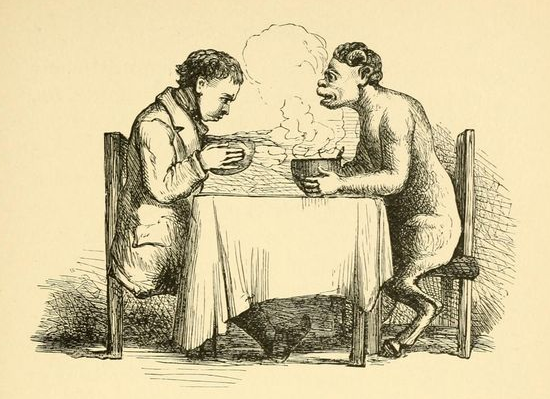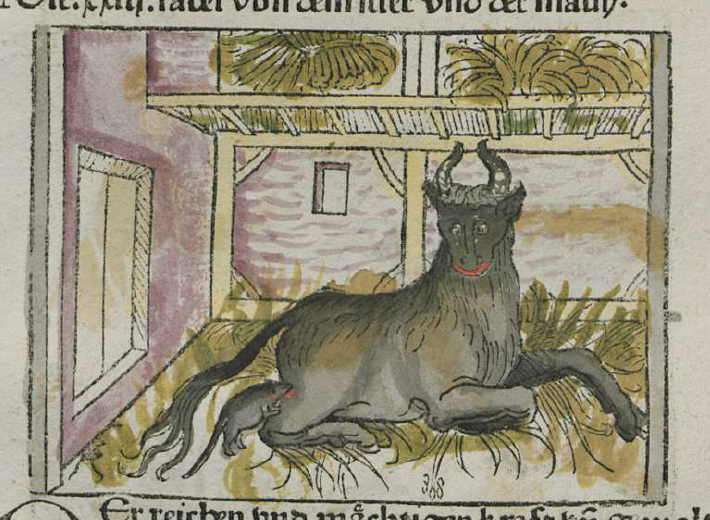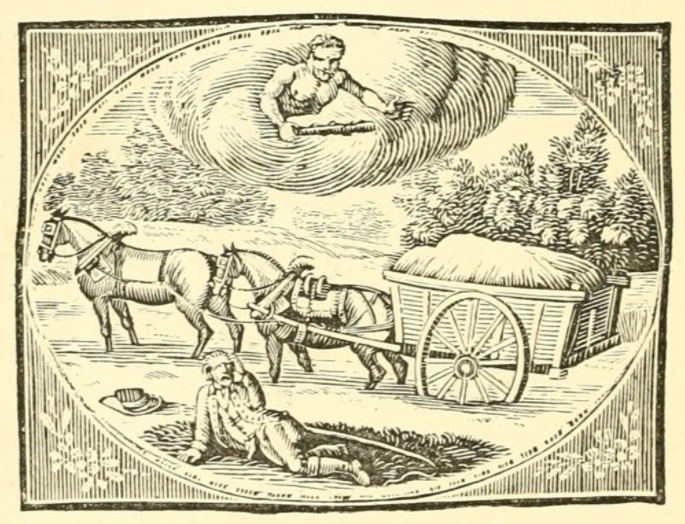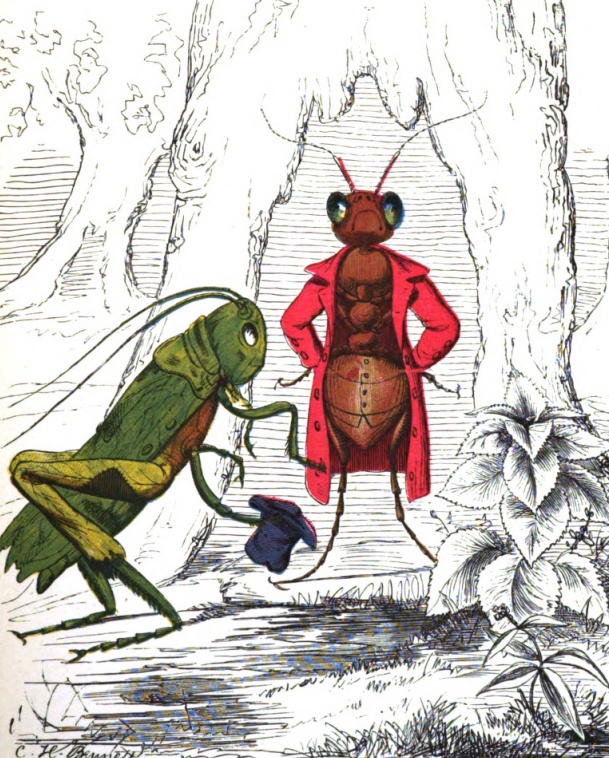76. Of the Satyr and the Traveler
A satyr, who formerly was accounted a god of the woods, having pitied a traveler covered with snow and almost dead with cold, leads him into his cave, cherishes him with fire. But whilst he breathes into his hands, he inquires the cause, who, answering, says, "That they may be warm." Afterwards, when they sat down, the traveler blows into his porridge, which being asked why he did, he said, "That it may grow cool." Then immediately the satyr, casting out the traveler, says, "I am not willing that he be in my cave who has so different a mouth."
Moral. Avoid a double-tongued man who is a Proteus in discourse.

77. Of the Bull and the Mouse
The mouse had bit the foot of the bull, flying into his hole. The bull brandishes his horns, seeks his enemy, sees him nowhere. The mouse laughs at him; says he, "Because thou art robust and big, therefore you should not have despised anyone. Now a little mouse has hurt thee, and indeed gratis."
Moral. Let no man rate his enemy at a lock of wool.

78. Of the Countryman and Hercules
The wagon of a countryman sticks in deep clay. By and by laying along, he implores the god Hercules. A voice thunders out of heaven, "Fool, whip thy horses, and thyself try at the wheels, and then Hercules, being called, will be present."
Moral. Idle vows profit nothing, which indeed God does not hear. Thyself help thyself; then God will help thee.

79. Of the Grasshopper and the Pismire
When the grasshopper sings in the summer, the ant exercises her harvest, drawing the grains into a hole which she lays up against winter. The winter raging, the famished grasshopper comes to the ant and begs victuals. The ant refuses, saying that she had labored whilst she sang.
Moral. Who is slothful in youth shall want in old age, and who doth not spare, by and by shall beg.

80. Of the Dog and the Lion
A dog, joking, meets a lion, "Why dost thou, exhausted with want, run through the woods and byplaces? See me, fat and sleek, and I obtain these things not by labor, but by idleness. Then the lion says, "Thou indeed hast thy dainties but, fool, thou hast also chains. Be thou a slave, who art able to serve; I, indeed, am free, nor am I willing to serve."
Moral. The lion answered beautifully, for liberty is better than all things.
[this fable is usually told about a wolf, not a lion,
so I don't have an illustration]
so I don't have an illustration]
No comments:
Post a Comment
Comments are limited to Google accounts. You can also email me at laurakgibbs@gmail.com or find me at Twitter, @OnlineCrsLady.